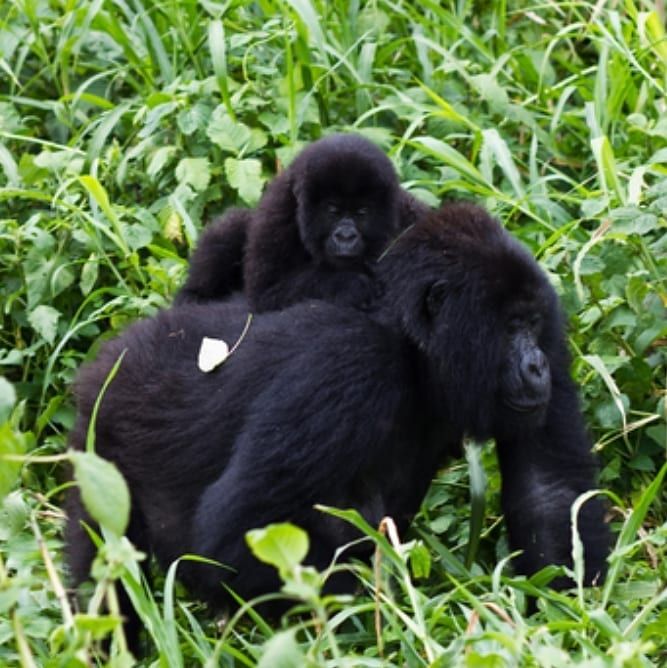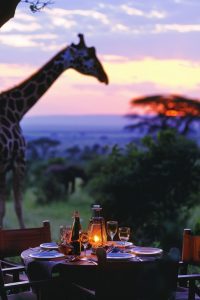When it comes to gorilla trekking and wildlife safaris in East Africa, both Uganda and Rwanda offer world-class experiences. However, many travelers consistently choose Uganda over Rwanda—and for compelling reasons. Uganda stands out not just for affordability, but for the diversity of experiences, variety of landscapes, and authentic adventure. Below is a detailed look at why Uganda often becomes the top pick for travelers seeking a more rewarding and immersive safari experience. Why Do People Choose Uganda Over Rwanda
Is Gorilla Trekking More Affordable in Uganda?
Yes, gorilla trekking in Uganda is significantly more affordable than in Rwanda. One of the biggest factors influencing traveler decisions is cost. In Rwanda, a gorilla permit costs $1,500 per person, while in Uganda it is $800 per person (as of 2025).
This price difference allows budget-conscious travelers, families, and groups to access the same thrilling gorilla encounter without breaking the bank. Uganda also offers discounted permits during the low season and special rates for East African residents, making it even more appealing.
Does Uganda Offer More Gorilla Trekking Destinations?
Uganda has two national parks for gorilla trekking Bwindi Impenetrable National Park and Mgahinga Gorilla National Park. Bwindi alone is home to over half of the world’s remaining mountain gorillas and features multiple trekking sectors (Buhoma, Ruhija, Rushaga, and Nkuringo), each with several habituated gorilla families.
In contrast, Rwanda only offers trekking in Volcanoes National Park. The diversity of gorilla trekking locations in Uganda allows for greater flexibility in itinerary planning, lodge choices, and crowd distribution—making for a more intimate trekking experience.
Does Uganda Offer More Wildlife Variety?
Absolutely. While Rwanda’s focus is primarily on gorilla tourism, Uganda is a full-spectrum safari destination. In addition to gorilla trekking, visitors can enjoy:
- Chimpanzee tracking in Kibale Forest National Park
- Big Five safaris in Queen Elizabeth National Park and Murchison Falls National Park
- Tree-climbing lions in the Ishasha sector
- Boat cruises on the Nile River and Kazinga Channel
- Birdwatching in Uganda’s wetlands and forests, with over 1,000 bird species
For travelers seeking a broader African safari experience that goes beyond gorillas, Uganda provides far more diversity in activities, landscapes, and wildlife.
Is the Gorilla Trekking Experience in Uganda More Adventurous?
Yes, for many travelers, Uganda offers a more rugged and immersive adventure. The treks in Bwindi and Mgahinga tend to be more challenging than those in Rwanda due to the steeper terrain and denser rainforest. While this may deter some, it appeals greatly to adventure seekers looking for a physically engaging experience.
Additionally, Uganda offers the gorilla habituation experience, which allows trekkers to spend up to four hours with a gorilla family in the process of getting used to human presence. This unique, extended experience is only available in Uganda, not in Rwanda.
Is Uganda More Culturally Immersive?
Uganda’s cultural diversity is another reason people choose it. With over 50 indigenous tribes, the country offers rich and varied cultural encounters. Travelers can visit Batwa pygmy communities, traditional craft markets, homestays, and local dance performances—experiences that go far beyond standard wildlife tourism.
Rwanda has a rich culture too, but the cultural tourism scene in Uganda is broader, less commercialized, and often more integrated into community-based tourism initiatives.
How Do Lodging and Safari Costs Compare?
Uganda’s accommodation options cater to a wide range of budgets—from luxury lodges to mid-range tented camps and budget guesthouses. This flexibility makes Uganda more accessible for different types of travelers.
Rwanda has invested heavily in luxury tourism, and while the quality is excellent, the options are heavily skewed toward high-end clientele. Many mid-range travelers find Rwanda’s accommodation prices too steep compared to what they can access in Uganda for similar comfort.
Is Uganda Easier for Combining Other East African Destinations?
Yes. Uganda’s central location makes it a strategic hub for combining multiple destinations. For example, you can easily pair Uganda with:
- Kenya’s Masai Mara
- Tanzania’s Serengeti
- The Rwenzori Mountains
- Jinja for the source of the Nile and adventure sports
Entebbe International Airport offers direct connections to major East African cities, making multi-country itineraries seamless and efficient.
How About the Crowds and Tourist Traffic?
Uganda’s gorilla trekking experience is often less crowded than Rwanda’s. In Rwanda, with only one park for trekking and a limited number of habituated groups, trails can get busy during peak seasons. Uganda’s multiple trekking sectors spread out the traffic, creating a more private and serene experience in the forest.
Is Uganda a Safe Destination for Tourists?
Yes. Despite occasional headlines, Uganda remains safe and welcoming for tourists. The Uganda Wildlife Authority and local tour operators prioritize visitor safety in all national parks. Gorilla trekking areas like Bwindi and Mgahinga are highly secure and well-managed, with strong community engagement and ranger presence.
Tourists also consistently report feeling safe in cities like Kampala and Entebbe, and during their travels through the countryside.
Why Uganda Is the Preferred Choice
People choose Uganda over Rwanda not because Rwanda lacks quality but because Uganda offers greater value, more variety, and a richer, more immersive adventure. With affordable trekking permits, two gorilla parks, more diverse wildlife, extensive safari options, and authentic cultural experiences, Uganda presents a more comprehensive African safari. Why Do People Choose Uganda Over Rwanda
Whether you’re a solo traveler, couple, honeymooner, or family, Uganda’s welcoming spirit and natural beauty create a safari that is not only unforgettable but deeply rewarding. Why Do People Choose Uganda Over Rwanda
If you’re seeking an adventure that blends world-renowned wildlife encounters with local culture, affordability, and rich biodiversity, Uganda isn’t just a good option it’s often the best one.




